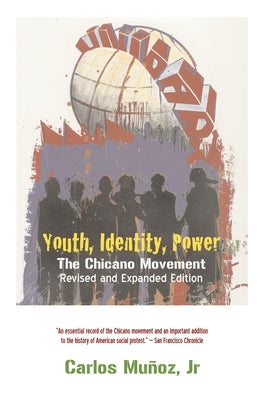Description
Youth, Identity, Power is the classic study of the origins of the 1960s Chicano civil rights movement. Written by a leader of the Chicano student movement who also played a key role in the creation of the wider Chicano Movement, this is the first full-length work to appear on the subject. It fills an important gap in the history of political and social protest in the United States. Carlos Mu oz places the Chicano Movement in the context of the political and intellectual development of people of Mexican descent in the USA, tracing the emergence of student activists and intellectuals in the 1930s and their initial challenge to the dominant white racial and class ideologies. He then documents the rise and fall of the Chicano Movement of the 1960s, situating it within the 1960s civil rights and radical movements and assessing the Chicano Movement's contribution to the development of the Mexican American population and the Latino population as a whole. In an afterword to this new edition, Mu oz charts the burgeoning growth of US Latino communities, assesses the nativist backlash against them, and argues that Latinos must play a central role in a new movement for multiracial democracy.
Author: Carlos Munoz
Publisher: Verso
Published: 08/17/2007
Pages: 272
Binding Type: Paperback
Weight: 1.00lbs
Size: 9.10h x 6.10w x 0.80d
ISBN13: 9781844671427
ISBN10: 1844671429
BISAC Categories:
- Social Science | Ethnic Studies | American | Hispanic American Studies
- Political Science | Political Process | Political Advocacy
Author: Carlos Munoz
Publisher: Verso
Published: 08/17/2007
Pages: 272
Binding Type: Paperback
Weight: 1.00lbs
Size: 9.10h x 6.10w x 0.80d
ISBN13: 9781844671427
ISBN10: 1844671429
BISAC Categories:
- Social Science | Ethnic Studies | American | Hispanic American Studies
- Political Science | Political Process | Political Advocacy
About the Author
Carlos Muñoz, Jr. is a scholar-activist and Emeritus Professor in the Department of Ethnic Studies at the University of California, Berkeley. He was the founding chair of the first Chicano Studies Department in the nation and a founder of the National Association of Chicano and Chicana Studies.

